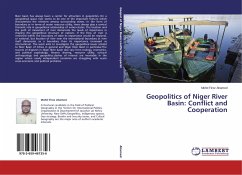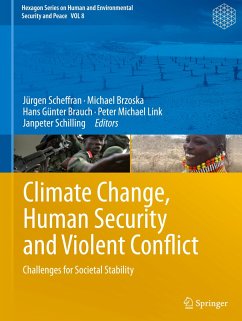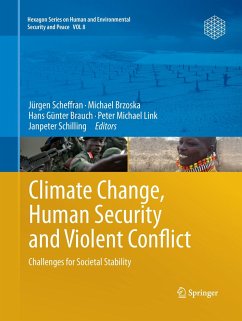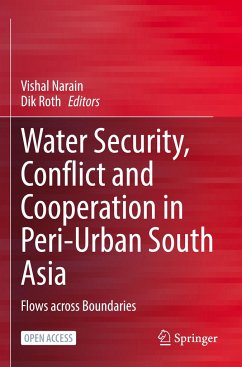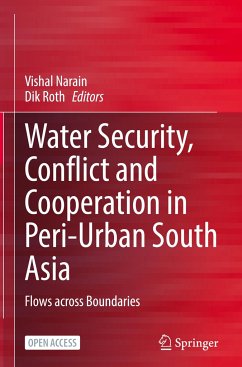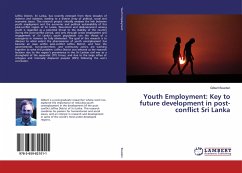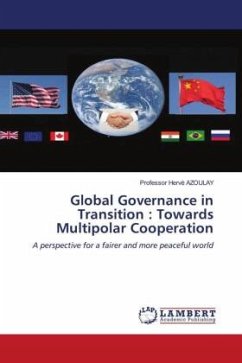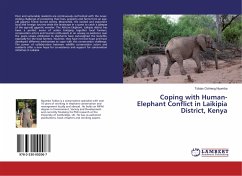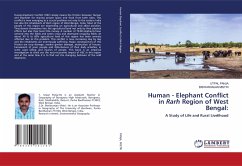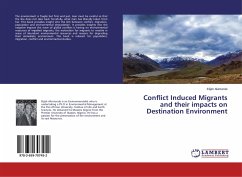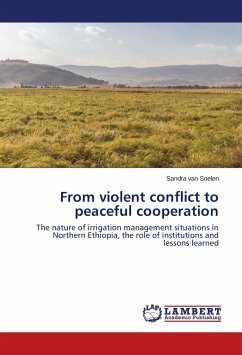
From violent conflict to peaceful cooperation
The nature of irrigation management situations in Northern Ethiopia, the role of institutions and lessons learned
Versandkostenfrei!
Versandfertig in 6-10 Tagen
16,99 €
inkl. MwSt.

PAYBACK Punkte
8 °P sammeln!
Water is crucial to human life and the earth as a whole; there is no life without water. The majority of the rural population in Ethiopia is depending on agriculture for their livelihood and most agriculture is still based on the availability of rain. This limits the possibilities of the rural population to have a consistent income all year long; their agricultural practices are more focused on subsistence farming. Irrigation developments are growing rapidly in Ethiopia and there is a water resource potential to increase the irrigated agriculture. Managing these water systems is however not al...
Water is crucial to human life and the earth as a whole; there is no life without water. The majority of the rural population in Ethiopia is depending on agriculture for their livelihood and most agriculture is still based on the availability of rain. This limits the possibilities of the rural population to have a consistent income all year long; their agricultural practices are more focused on subsistence farming. Irrigation developments are growing rapidly in Ethiopia and there is a water resource potential to increase the irrigated agriculture. Managing these water systems is however not always easy. Water management equals managing conflicting interests and farmers can get competitive to secure their own access to water for irrigation. However, there is not much knowledge available about the nature of these local management situations. Therefore, a research has been conducted to look at the nature of local management situations, the role of various institutions and stakeholders, and the way in which problems are dealt with (conflict management). The aim was to know the contextual factors of the conflicts, the stakeholders involved and the dynamics around the situation.



